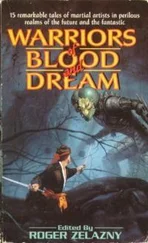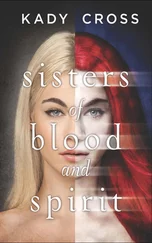It didn’t release its grip until morning.
The sun brought more than warmth and light, it brought relief. The men relaxed when the order to stand down was given, they put down their weapons. Fires were relit and cigarettes passed round by those glad to be still alive.
“I bet the bastards were sitting out there all night watching us,” said Schiller, yawning. He sat down on the damp earth and rubbed his hands together, trying to restore the circulation.
“Well they won’t try anything in the daylight,” said Foss, chewing on a piece of stale bread, “night birds, the partisans.”
“Bloody cowards,” snorted Driest, “they skulk about in the dark like ghosts.”
“Too bloody right,” said Schiller, “what’s the point in parading about so that everybody can see you? That’s the quickest way to get killed.”
“What about Von Roder?” asked Ganz. “Aren’t we going to bury him?”
“Fuck him,” grunted Schiller, stuffing half a potato into his mouth, “the bastard had it coming, if the partisans hadn’t done it someone else would have.”
“We’d better not sit around here too long,” said Herzog, peering through the binoculars. “Look.” He handed the glasses to Foss and pointed towards a set of low hills which were spouting smoke. The sky above them was black and, as Foss watched, he could make out the black arrowheads of distant aircraft.
“Poznan,” he said quietly, “looks like they’ve beaten us to it.”
“They could be ours,” offered Schiller, hopefully.
Foss shrugged. “Could be, but you know how fast the Russians move.” He handed the binoculars back to Herzog and spread the map out in front of him.
“Six miles to go,” he said, thoughtfully.
“It’s not getting there that bothers me,” added Herzog, still looking through the twin lenses, “it’s what we’re going to find when we get there.”
“You saw it too,” said Ritter, appearing at his elbow. “Sergeant Foss, we must move on immediately, if the Russians have reached the town, then they can’t be far behind either. We are in danger of being encircled.”
Brilliant deduction, thought Herzog, lowering the glasses. Ritter leant over the map and prodded it with his finger. “We can take that route when we have crossed this bridge, that way we can bypass the Russians on the outskirts of Poznan.” He turned to Ganz. “Try and get through to H.Q., I want to know their strength.”
The radio crackled for a moment, then whined and went dead. Ganz fiddled ineffectively with it and then shrugged his shoulders. “It’s blown,” he said.
Ritter kicked out at the broken set and turned on Foss, “Get these men up now,” he shouted. Foss saluted and bellowed to the waiting Germans to pick up their gear. Vogel lifted the heavy MG 42 onto his shoulder and stepped into line beside Schiller who was finishing off his potato.
Herzog was the first one to hear the rumbling.
“Listen,” he said, raising a hand for quiet.
The men cocked hopeful ears but heard nothing.
“You’re imagining things,” chided Schiller.
“No,” interrupted Driest, “I hear it too.”
“It’s probably coming from over there,” said Synovski, motioning towards Poznan, still bleeding smoke into the air.
Herzog shook his head. “It’s closer than that.”
“Why are you standing around?” demanded Ritter, angrily. “Corporal, move your men.”
“Listen,” snapped Herzog, turning on Ritter.
“The guns,” shouted the captain, “it’s the guns.”
“Then why,” said Herzog, looking down, “is the earth shaking?”
The men looked round, towards the top of the hill, and thought that they had been transported back in time.
It was as if a race of centaurs had crested the ridge. The rumbling grew to a climax and then broke like a wave over the hill. First a line of upheld sabres appeared, then the heads and necks of the horses and finally the shapes of the men riding them.
Cossacks, hundreds of them, astride magnificent horses, swept over the crest, sabres glinting in the early-morning sunlight.
“Oh my God,” whispered Driest.
Without waiting for the order, the Germans broke and fled, racing for the bridge at the bottom of the valley. Behind them, horses snorted wildly urged on by the exhortations of their riders. Many of the Russians were also carrying machine-guns and a hail of bullets began to spatter the fleeing Germans. Those that fell were left to be trampled, no one dared stop to help them.
“Take cover,” screamed Ritter as they reached a line of hedges, “we can’t outrun them.”
The men threw themselves behind the hedge, scrambling for their weapons and firing madly into the wall of flesh. The thunder of horses’ hooves was momentarily drowned by the crash of rifles and machine-guns. High-pitched screams rang out over the hillside as bullets ploughed through men and horses, dropping them like slaughtered cattle. Many of the Cossacks dismounted and fired back, using the bodies of dead horses as cover. A group of about thirty charged the crouching Germans.
Vogel squeezed the trigger of the MG 42 and a hail of bullets swept the onrushing Cossacks. Horses cartwheeled, sending riders hurtling through the air. One man, unable to release his foot from the stirrup, screamed as the limb was wrenched from the socket. Grenades exploded amongst them, the blasts plucking men from their saddles and hurling them beneath the hooves of the following horses.
One of the German engineers had a flame-thrower and, as half a dozen Cossacks reached the hedge, he turned its blistering tongue towards them. There was a loud whoosh and the air was filled with the stench of burning oil and the shriek of flame, next moment to be replaced by the howls of agony as men and animals were reduced to ashes by the flame. Burning horses dashed madly about, carrying riders who were living torches. The familiar odour of charred flesh filled the air.
An officer, riding a magnificent white stallion, hurdled the fence and landed next to the engineer. Before he had time to swing the flame-thrower round, the Cossack brought his sabre down and, with a blow which combined demonic force with effortless expertise, split the man’s skull. The sabre sliced through the flesh and muscle and the engineer’s face fell off as if it were a piece of apple. The officer wheeled his horse, looking for fresh victims. He saw one.
Kahn stood firm as the Cossack thundered towards him; he whipped out the samurai sword and waited. The blow swept over his head and he struck out, catching the horse in the side. The animal shrieked and fell, its entrails spilling out in a red and yellow pulp. The officer tumbled from it and, before he could get up, the Jap skewered him to the floor. A gout of blood rose from the wound, spattering Kahn, but he pressed down on the hilt until he felt it puncture earth.
“We’ve got to reach the bridge,” said Ritter, squeezing off a shot.
“If we run, they’ll slaughter the lot of us,” said Foss.
“Not if we go a few at a time,” said Herzog.
The other two men looked at him, silently demanding an explanation; he continued, “A group of men will have to hold them off while the others get to the bridge. It could be blown up when everyone was across.”
Ritter nodded, a slight smile creasing his lips. “Very well, corporal, you hold them, I will lead the others down to the bridge.”
“Wolf,” began Foss, touching the corporal’s arm, “how do you get down?”
“Run like hell,” answered Herzog flatly.
He watched as the first group picked its way cautiously down the hillside, using the trees to cover their escape. He saw them cross the bridge, two of them pausing to set the charges.
“Ever get the feeling someone’s trying to kill you?” asked Schiller, crawling across to join him.
Читать дальше












